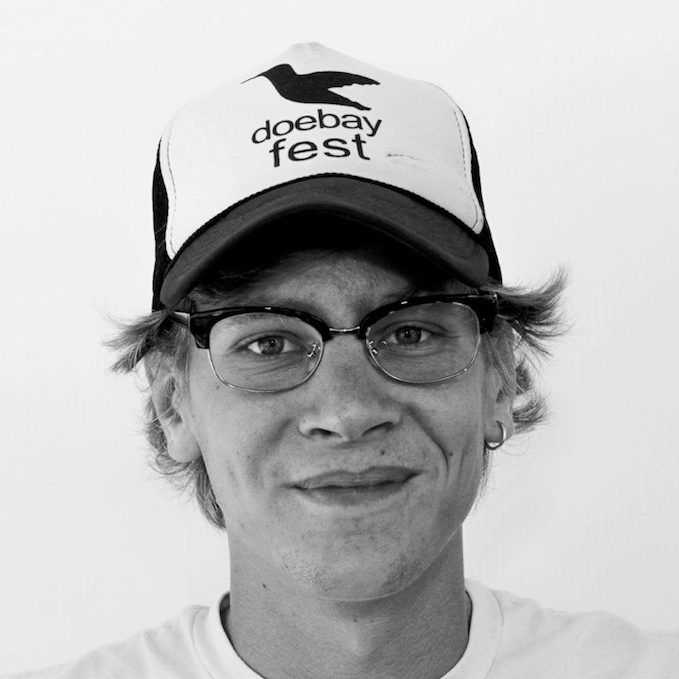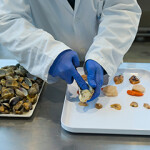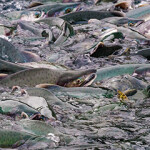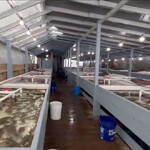Patriot Shellfish Farms hopes to use aquaculture to help vets with PTSD

Vietnam War veteran Dan Barth thinks that shellfish can help soldiers handle post-traumatic stress disorder (PTSD) as well as save his fellow veterans from isolation, and ultimately suicide.
Soon after Barth graduated from the University of Michigan with a degree in forestry in 1969, he was drafted to fight in the Vietnam War, where he served from 1970 to 1973.
After returning home from the war, he worked for Washington State Department of Resources, beginning in forestry, then moving to the department’s marine programs. He supervised the department’s statewide aquaculture leasing program for decades.
“Wouldn’t you know it, 30 years went by in a flash,” he told SeafoodSource.
After retiring in 2002, Barth began consulting shellfish growers in Puget Sound and also in Ireland, where he helped to start an oyster farm in Galway Bay.
When Barth returned to Washington State from Ireland, his son Brendan joined the U.S. Army, was deployed to Iraq, and returned with a service-related disability, just as his father did when he returned from the Vietnam War.
Brendan’s experiences coming home from war got Barth thinking about how he could use his expertise to help veterans. He said he was inspired by a book by Stephanie Westlund, a Canadian author, called “Field Exercises: How Veterans are Healing Themselves Through Farming and Outdoor Activities,” in which she writes that “eco-therapy” can be incredibly helpful for veterans with PTSD.
And Barth paints a picture of what it’s like as a vet out in nature, working on a shellfish farm.
“It’s 4:30 in the morning, the sun is just about to come up, and I’m out on Harstine Island, and I’ve got orca whales in front of me and bald eagles and dogfish and sharks, and I thought, ‘There are no sirens, there are no sounds but nature,’” he said.
It was Brendan who pitched the idea of Patriot Shellfish Farms to his father, when he took him out to the oyster beds with him.
“He said, ‘Dad, this is really cool. We have to get more vets out here," Barth said. "Let’s start Patriot Shellfish Farms and get veterans growing oysters and clams."
His son’s suggestion got the ball rolling and Barth plans to use his career connections in the field to start one- to five-acre shellfish farms. He would provide the start-up costs, get the farms permitted, train the veterans to run them and then turn them over to the veterans after recouping his initial investment. The plan is still in the infancy stage and Barth is currently obtaining permits to get farms in the Puget Sound area started, though he certainly is not opposed to expanding the idea to the national scale when the time is right.
While shellfish farming isn’t all sunshine and roses, Barth said veterans are uniquely suited to its hardships.
“You gotta suffer the cold and rain in the wintertime and the heat in the summertime,” Barth said. “If aquaculture were easy, everyone would be doing it. It’s not easy, it’s tough. But veterans can handle that stuff.”
About a year ago, a business partner got in touch with Barth to propose adding a seaweed component to his business model, so Barth is searching for locations to begin kelp farms as well. He hopes to be ahead of the curve with a kelp farm in Washington, as there is only one other, which is an experimental research project.
Barth’s plans for seaweed are just as ambitious than his shellfish ideas. He wants to use it to clean up polluted waterways in Puget Sound, as kelp is helpful in absorbing impurities in the water. Because the kelp isn’t fit for consumption, Barth instead proposes taking the contaminated kelp, rendering it to biofuel, and using the glycerin produced as a byproduct to produce soap that they would donate. Other ideas include selling the kelp to people in the fish fertilizer industry, who have said they are interested in buying hundreds of thousands of pounds of it. Barth proposes bringing veterans into this field as well, as soon as he has developed it.
“While we’re restoring Puget Sound, at the forefront is restoring America’s veterans who have had damage in some way and bringing them back into the fold and into the community,” he said.
Even if vets are business-minded, they can’t do it alone; Barth recalls looking at the pay-scales for low-ranking soldiers and realizing that their pay would never be enough to offer them substantial savings for a business investment upon their discharge. To combat this, Barth is now working Washington's Department of Veterans Affairs and private contractors from NOAA to encourage the organizations to hire veterans as interns. The internships will be designed to help integrate the veterans into the world of aquaculture, as few if any of the vets have any background or exposure to the field.
Barth said he's putting in the work on these projects because he wants to do his part to make sure veterans feel valued and that they have a path forward in life.
“What’s the value of a human life?” he said. “I can save a vet from killing himself because I put him out there [in aquaculture], and say here’s your role, here’s your responsibility … You grow these oysters and you take it to the farmers market, you become a member of the community, you deal with your PTSD by becoming engaged.”






Share